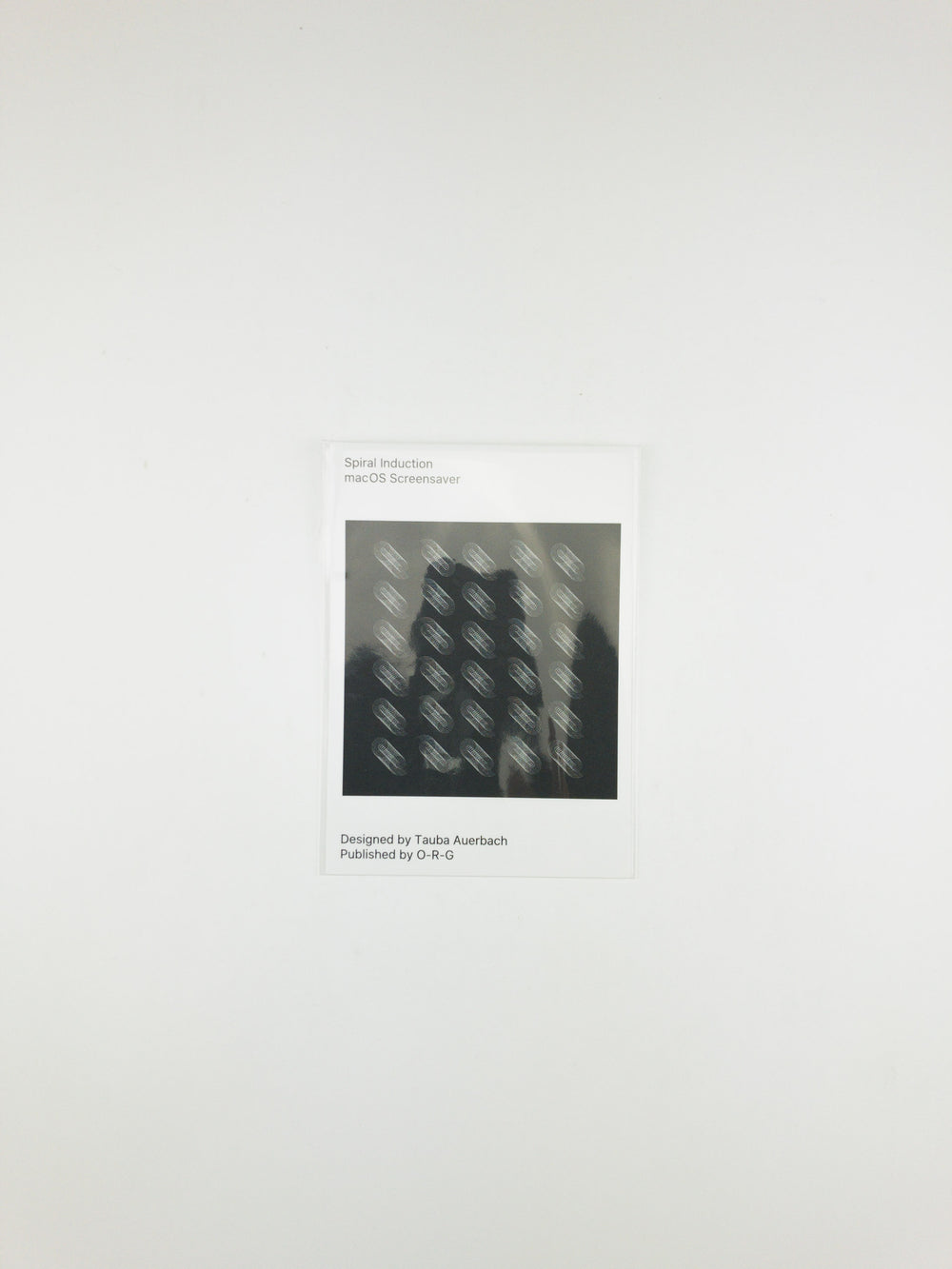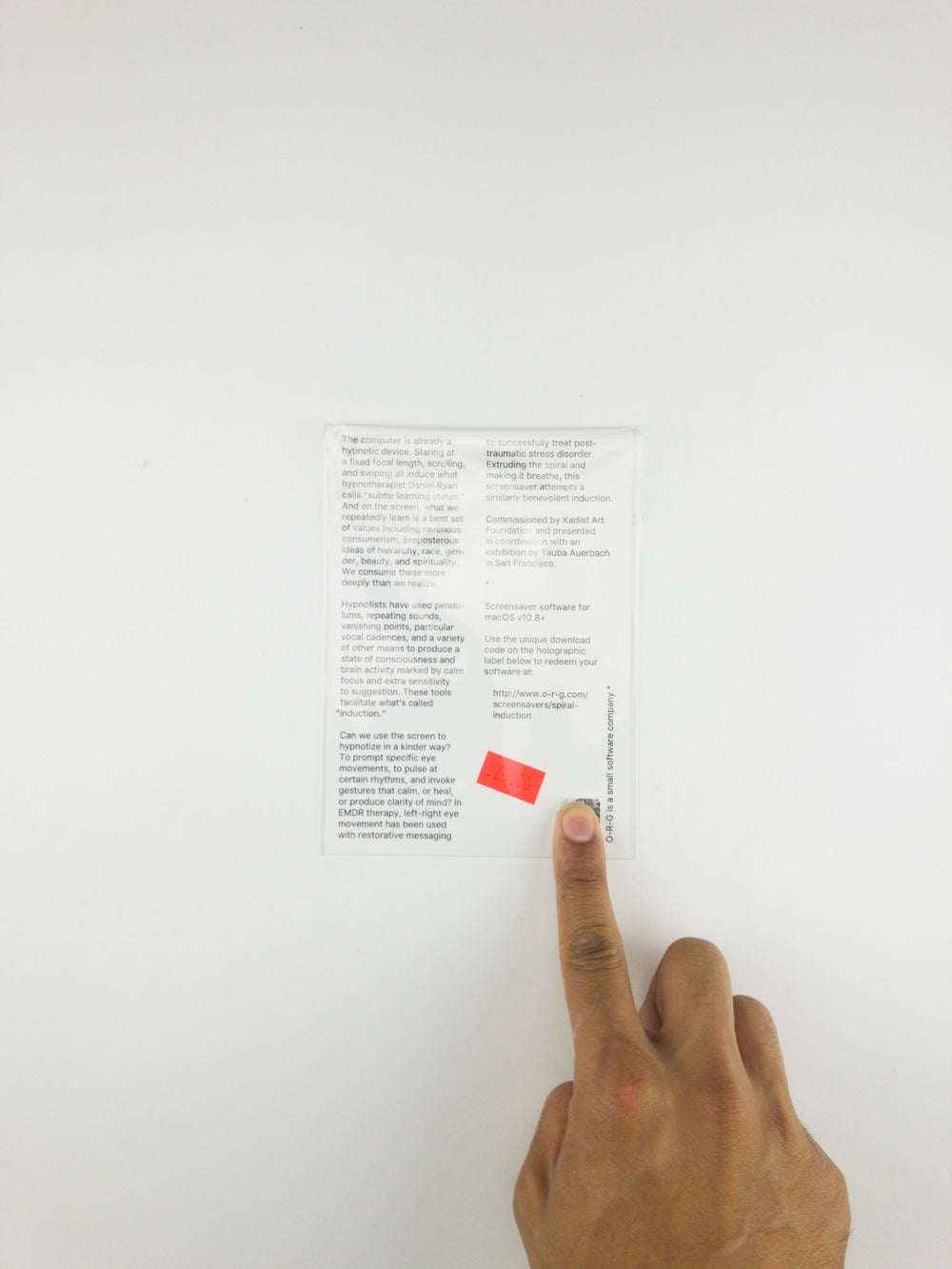Spiral Induction (screensaver)
O-R-G
O-R-G


1/2
2/2
Spiral Induction (screensaver)
O-R-G
O-R-G
The computer is already a hypnotic device. Staring at a fixed focal length, scrolling, and swiping all induce what hypnotherapist Daniel Ryan calls “subtle learning states.” And on the screen, what we repeatedly learn is a bent set of values including ravenous consumerism, preposterous ideas of hierarchy, race, gender, beauty, and spirituality. We consume these more deeply than we realize.
Hypnotists have used pendulums, repeating sounds, vanishing points, particular vocal cadences, and a variety of other means to produce a state of consciousness and brain activity marked by calm focus and extra sensitivity to suggestion. These tools facilitate what's called “induction.”
Can we use the screen to hypnotize in a kinder way? To prompt specific eye movements, to pulse at certain rhythms, and invoke gestures that calm, or heal, or produce clarity of mind? In EMDR therapy, left-right eye movement has been used with restorative messaging to successfully treat post traumatic stress disorder. Extruding the spiral and making it breathe, this screensaver attempts a similarly benevolent induction.
Designed by Tauba Auerbach, commissioned by Kadist Art Foundation, and presented in coordination with an exhibition in San Francisco.
Six Prototypes for a Screensaver was commissioned for “Quick, Quick, Slow: Word, Image and Time”. Curated by Emily King, this exhibition is a co-production between Museu Colecção Berardo and ExperimentaDesign Lisboa 2009, 10 September – 29 November.
Hypnotists have used pendulums, repeating sounds, vanishing points, particular vocal cadences, and a variety of other means to produce a state of consciousness and brain activity marked by calm focus and extra sensitivity to suggestion. These tools facilitate what's called “induction.”
Can we use the screen to hypnotize in a kinder way? To prompt specific eye movements, to pulse at certain rhythms, and invoke gestures that calm, or heal, or produce clarity of mind? In EMDR therapy, left-right eye movement has been used with restorative messaging to successfully treat post traumatic stress disorder. Extruding the spiral and making it breathe, this screensaver attempts a similarly benevolent induction.
Designed by Tauba Auerbach, commissioned by Kadist Art Foundation, and presented in coordination with an exhibition in San Francisco.
Six Prototypes for a Screensaver was commissioned for “Quick, Quick, Slow: Word, Image and Time”. Curated by Emily King, this exhibition is a co-production between Museu Colecção Berardo and ExperimentaDesign Lisboa 2009, 10 September – 29 November.